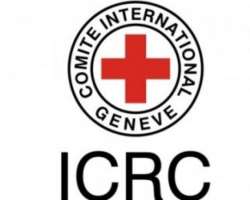Mali: humanitarian situation in north continues to cause concern

GENEVA, Switzerland, October 16, 2012/African Press Organization (APO)/ -- The humanitarian situation in the north of Mali is still deteriorating. Not only are people struggling with the effects of armed conflict, but recent flooding has destroyed crops and sent food prices soaring. The ICRC is pressing ahead with its distributions of food in the main areas affected.
"Basic foodstuffs have become difficult for most people to obtain in the Timbuktu, Kidal, Mopti and Gao areas because of the high cost," said Jean-Nicolas Marti, the head of the ICRC regional delegation for Mali and Niger. "This year's harvest could have been plentiful, but the security situation and the lack of agricultural inputs during the planting period made it impossible to take full advantage of the growing season. In addition, heavy rains flooded fields in certain areas, which resulted in even greater hardship for some people. That's why there is a need for more food even though the harvest is currently under way."
Food for 420,000 people
To help the neediest, the ICRC and the Mali Red Cross are continuing to distribute food in the Timbuktu, Gao, Kidal and Mopti areas. New distributions of millet, rice, beans, oil and kitchen salt for 420,000 people have begun after the ICRC appealed in September for 25 million Swiss francs (more than 20 million euros) in additional funding.
"We are going to continue to distribute food to the neediest people, who have completely exhausted all their reserves," said Mr Marti. "We will cover their immediate needs, preserve their livelihoods and determine what actions should be taken to support their coping mechanisms."
Supporting livestock herders
A programme of support for livestock herders that was already under way before the conflict erupted is still on track despite the overall deterioration in security conditions. From July to September, over 160,000 animals were treated against parasites. In addition, the so-called "de-stocking" of 15,000 head of cattle, sheep and goats is under way: to date, almost 6,000 animals have been purchased and slaughtered, and their meat has been distributed to 78,000 people. Finally, a new vaccination campaign is set to begin next month.
Helping flood victims
The situation of flood victims in a number of towns and villages is a cause of humanitarian concern. In August and September, torrential rains caused the loss of a number of human lives and enormous material damage: houses were destroyed and abandoned, animals were carried away by the floodwaters and granaries were rendered unusable.
The ICRC and local Mali Red Cross chapters in Gao, Mopti and Timbuktu identified almost 4,000 victims of the flooding and provided them with tarpaulins, sleeping mats, blankets, insecticide-treated mosquito nets, cooking utensils, buckets, hygiene items, clothing and food.
Responding to malaria
During the current rainy season, there has been a sharp rise in the number of malaria cases reported in health-care facilities in the northern part of the country. Of the nearly 1,500 outpatient visits that took place in September at the Gao regional hospital, more than 30 per cent concerned cases of malaria.
The ICRC continues to provide medicines and medical supplies for all departments of the Gao regional hospital. In September, 171 patients were hospitalized there, most of them on an emergency basis. The ICRC has also resumed support for six of the nine health-care centres it intends to help, mainly by providing medicines.
